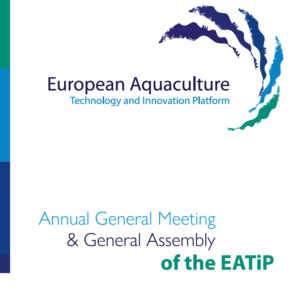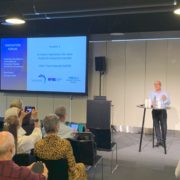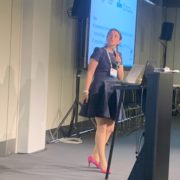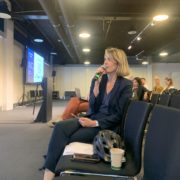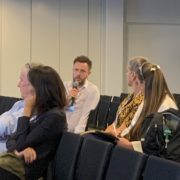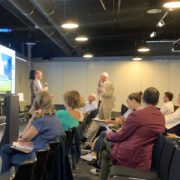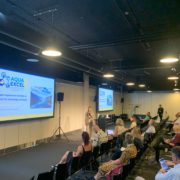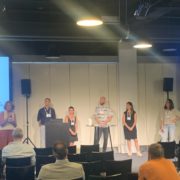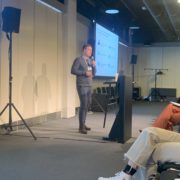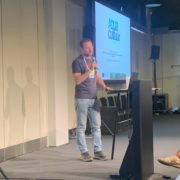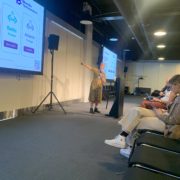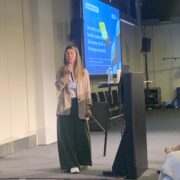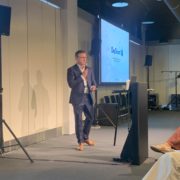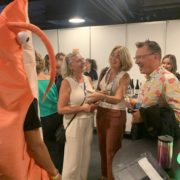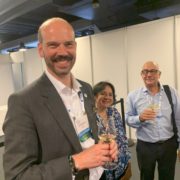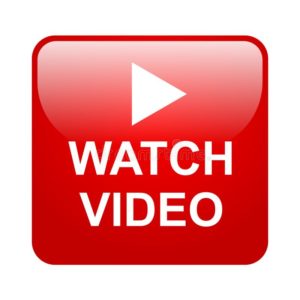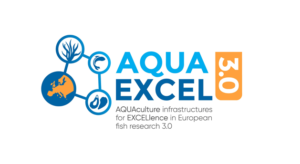OLAMUR to find sustainable solutions to challenges in offshore maritime environments where space demand is rising
/0 Comments/in OLAMUR, Projects /by EATIPSuccess stories – AQUAEXCEL3.0
/0 Comments/in AQUAEXCEL3.0, EATIP Forum /by EATIPThe European funded AQUAEXCEL3.0 Research Infrastructure project has played a leading role in advancing aquaculture through innovation, collaboration, and practical implementation of research. By ensuring that scientific knowledge is effectively translated into sector-relevant solutions, AQUAEXCEL3.0 has strengthened the industry’s innovation capacity. The Industry and Research Advisory Panel (IRAP) selected 5 success stories: the most impactful knowledge outputs generated by Transnational Access projects by April 2025. They demonstrate how research-driven insights in fish health, nutrition, genetics, and environmental performance are applied across Europe to enhance productivity, resilience, and sustainability in aquaculture.
Experimental assessment of the fish meal content requirements for
Meagre (Argyrosomus regius) feeds
Ramon Fontanillas

Ramon is an experienced Principal Researcher with a demonstrated history of working in the feed production industry, for more than 20 years. He is currently working in Skretting Aquaculture Research Center (Norway).
Ramon is skilled in Fish and Animal Nutrition, Product Development, Research and Development (R&D). He holds a strong professional profile with a Doctor of Philosophy – PhD focused in Fish and Animal Nutrition from Universitat Autònoma de Barcelona.
The Challenge: Meagre (Argyrosomus regius) is a species characterised by distinctly carnivorous feeding habits. Previous studies have shown that juvenile of meagre have a high dietary protein requirement (50%). Previous work has also shown that it is possible to reduce fish meal inclusion in diets for rearing carnivorous fish, but for meagre information so far is scarce, and the reported minimum fish meal inclusion is around 30%. Further research is needed to be able to formulate nutrient well-balanced diets based on the knowledge of alternative protein sources (either plant or land-based animals by products). The objective of this study was to evaluate the effects of Fish Meal substitution with different vegetable protein blends on growth performance, voluntary feed intake, feed utilization and health on meagre.
The Solution: Ramon’s research demonstrated that it is possible to decrease the fish meal inclusion from 40% down to 15% with either plant protein (i.e. wheat gluten. spy protein concentrate) ingredients or poultry by-products as part of a balanced diet in terms of amino acids, minerals and vitamins. There were no differences in growth performance, voluntary feed intake, feed utilisation or health.
The Application: This research offers a direct pathway for aquafeed producers to formulate more sustainable, plant-rich diets specifically tailored for meagre aquaculture. Meagre farmers can utilise these findings to adopt more environmentally sound and potentially cost-efficient feeding practices. Furthermore, Ramon’s work provides a solid scientific foundation for aquafeed researchers to pursue further investigations into minimising or even eliminating fishmeal dependence in aquaculture feeds.
The Future: Achieving further validation through broader trials and successful demonstrations of these outcomes will be critical for the aquafeed industry to confidently adopt Ramon’s formulations for commercial production. Ultimately, the widespread implementation of these findings promises a future where meagre feed production relies less on marine resources, contributing to a more sustainable and resilient aquaculture sector.
Learn more about Ramon’s results on the Horizon Results Platform!
Kiranpreet Kaur

Kiranpreet Kaur is the R&D Director of Aker QRILL (Norway), a company that was part of Aker BioMarine until September 2024. Kiran’s academic journey began with a PhD in Molecular Genetics from the Birla Institute of Technology and Science, India. Her postdoctoral research includes positions at the University of Illinois, Peoria (2009-2010) and Oslo universitetssykehus HF (2010-2012). In 2012, Kiran joined the Norwegian University of Life Sciences as a researcher, where she played a key role in advancing salmon aquaculture, with a focus on innovative sea lice treatment strategies, until 2019. Her research led to the development of diagnostic assays for assessing sea lice sensitivity to chemical treatments—work that culminated in two patents held by the Norwegian company PatoGen AS.
Her leadership capabilities led her to Aker BioMarine in 2019, where she served as the Director of Research & Development for Salmonids until her current role at Aker QRILL. Kiran’s career demonstrates a consistent trajectory of impactful contributions, solidifying her expertise in commercializing aquaculture research and development.
The Challenge: Feed is the most expensive part of fish aquaculture, attributing to around 60-70% of the production cost. Current fishmeal replacement feed recipes consist of high amounts of plant-based ingredients which are known to have low bioavailability of nutrients. Hence, it is important to produce feeds by including functional ingredients that could enhance the bioavailability and utilisation of nutrients by decreasing the feed conversion ratio (FCR), which would be beneficial towards improving fish health and performance. In addition, it would enable the industry to save costs by using less amounts of feed to achieve the desired weight of fish. This would be beneficial for the environment by reducing the wastage of feeds. Additionally, oxidative stress damage is an important issue among farmed fish, due to their continuous exposure to physical, biological, and chemical stressors. The objective of this study was to determine the potential of nutrients in krill meal towards improving the FCR in the feeds for juvenile gilthead seabream.
The Solution: Kiran’s results demonstrated the benefit of krill meal inclusion on enhancing the growth of juvenile gilthead seabream by significantly reducing the FCR. The results indicated that krill meal inclusion enables the seabream larvae to better utilise the feed nutrients and hence reduced amount of feed would be needed, which is beneficial for the industry and for the environment.
The Application: Aquafeed researchers can use these results to build a further body of evidence on the effects of krill meal inclusion on FCR and the underlying mechanisms. Additionally, feed producers can use the results to include krill meal and reduce the volume of feed needed.
The Future: This groundbreaking work holds significant potential to reshape aquaculture practices. Firstly, the investigation into krill meal inclusion promises to deliver new knowledge regarding its effects on significantly reducing the Feed Conversion Ratio (FCR). This efficiency gain translates directly to lower feed costs and a reduced environmental footprint. This trial breaks new ground by being the first to scientifically demonstrate the specific effects of krill meal on oxidative stress levels in juvenile gilthead seabream, adding a crucial dimension to our understanding of its benefits beyond basic nutrition. Ultimately, the development and validation of new feed formulations, scientifically proven to offer these advantages, have a substantial potential impact on increasing overall productivity within the aquaculture sector.
Learn about Kiran’s results on the Horizon Results Platform!
The use of Wood-Based Yeast SCP (single-cell protein) as an ingredient for Trout diets
Ricardo Ekmay

Ricardo is the Senior Vice President of Research and Development at Arbiom (USA), a company that develops high-quality protein for human and animal food. In this role, he leads a team of scientists to develop and optimize Arbiom’s proprietary technology, which converts underutilised materials into single-cell protein powered by fermentation. He also serves as an Adjunct Assistant Professor at the University of Arkansas, where he shares his expertise and passion for science with students and researchers. He holds a PhD and a MS in Poultry Science from the University of Arkansas, and a BSc in Animal Science from Cornell University.
The Challenge: The global demand for high-quality, protein-rich foods continues to increase as the global population grows, along with income levels. Aquaculture is the fastest growing animal protein industry in the world and can help fulfil some of this demand. One of the key challenges though is sourcing a sustainable, renewable protein ingredient. Therefore, the development of alternative protein sources (with a reduced climate impact) is needed to ensure long-term food security in Europe. To ensure nutritional adequacy of an alternative protein for production animals, and to limit effluent production, dedicated trials determining nutrient bioavailability are required. Single cell protein (SCP) products, protein meals based on microbial or algal biomass, have the potential to fulfil this need. The implementation of alternative protein sources in aquaculture requires in-depth evaluation of their nutritional adequacy. There is limited knowledge on the use of SCP in aquaculture, especially commercially relevant species to Europe such as Rainbow trout. Therefore, a dose-response trial in Rainbow trout is warranted.
The Solution: Ricardo’s research focuses on “lignocellulosic biomass”, which is the most abundant, renewable carbon source that can be used for the production of proteins. Therefore, one of the more promising alternative proteins is a single-cell protein (SCP) cultivated on hydrolysed lignocellulosic biomass.
The Application: Aquafeed manufacturers will be able to prioritise alternative ingredients within their internal feed development programs. Fish farmers will be able to uptake the protein products to use in their farms.
The Future: The alternative protein market in Europe will continue to grow, leading to less dependance on non-European products and greater competitiveness at a global level. This shift can contribute to a more sustainable aquaculture industry, lessening the pressure on wild fish stocks and improving the environmental footprint of farmed seafood. Additionally, research like Ricardo’s can contribute to offer consumers a wider range of choices and potentially mitigating some of the environmental concerns associated with conventional fish farming practices.
Learn more about Ricardo’s results on the Horizon Results Platform!
Konstantinos Tzakris

Konstantinos Tzakris, based in Norway, is currently the Technical Manager at Planktonic AS. Konstantinos brings experience from previous roles at AVRAMAR and Selonda SA. Konstantino’s professional purpose is to advance fish and shrimp aquaculture, ensuring it’s both highly productive and profitable for businesses, while also being environmentally responsible. He believes this sector offers excellent opportunities for employees to contribute meaningfully. He holds a BSC in Fisheries and Aquaculture from the Alexander Technological Educational Institute of Thessaloniki and specialized in Sustainable aquaculture (University of St Andrews). He also carried out an MBA in Business Administration by the Hellenic Open University.
The Challenge: CryoPlankton (innovatively cryopreserved barnacle zooplankton, produced by the Norwegian company Planktonic) is already widely and successfully used as the standard live feed in several fish species in Europe, due to the rich nutritional quality and the simplicity of preparation compared with traditional live food items. It is also used in some fast-growing warm water species with great success. The short and long-term benefits of CryoPlankton are well documented e.g. in ballan wrasse (Labrus bergylta), where growth is superior compared to the larvae fed traditional live feeds while reports suggest that organogenesis completes in a shorter time frame. Despite the evidence of CryoPlankton superiority to conventional live feeds, there is a lack of scientific documentation of CryoPlankton benefits in Mediterranean species, including seabass aquaculture, especially regarding the long-lasting effects of the early-stage diet under industrial conditions. The main reason is that industrial operations of seabass aquaculture are complex and there is limited opportunity to perform long-term studies where all parameters in the hatchery and on-growing stage are under control. For this reason, the aim of Konstantino’s project was to study the long-term effects of Cryoplankton live-feed hatchery diets on European seabass.
The Results: The project’s results showed significant differences in the hatchery period KPIs and long-lasting effect of the CryoPlankton-fed treatments.In the hatchery period, the weight was almost 50% higher than the control .The growth rate of the CryoPlankton-fed animals during the hatchery period was significantly higher and while it was reduced during the on-growing, it remained evident giving 12% larger fish by the end of the trial after a year.
The Application: Seabass hatchery managers and producers can use the output to improve the production of seabass, including simplification of the process of producing larvae using a standardised methodology. The use of CryoPlankton in commercial seabass hatcheries, produce similar results to this study, although the expected results in each case may vary due to the scale effect and different setups. Additionally, fish researchers can take up the output to conduct further research to understand how CryoPlankton can benefit other species within established or specialized industries. Further research is planned to understand how CryoPlankton can benefit seabream, in collaboration with research centres and universities.
The Future: The integration of CryoPlankton into commercial seabass hatcheries is already delivering demonstrable biological and economic gains. By streamlining larval-rearing protocols and consistently boosting key performance indicators, the CryoPlankton technology reduces operational complexity while lowering the unit cost of juveniles. When these efficiencies compound over successive production cycles, CryoPlankton transforms seabass farming from a margin-sensitive venture into a reliably profitable enterprise, opening a new chapter for the long-term sustainability of the sector.
Learn more about Konstantinos’s results on the Horizon Results Platform!
Transforming food industry and agriculture waste into nutrient-rich alternative feed for fish: Case study with Black Soldier Fly Larvae
Martin Kulma

Martin Kulma, based in Czech Republic, is currently a Researcher at the Czech University of Life Sciences Prague, and a researcher at the National Institute of Public Health (Prague, Czechia).
Specialising in insects as food and feed, invasive insects and vector control, he’s been involved in more than 40 publications indexed in the Scopus database.
The Challenge: One of the aquaculture industry’s major challenges is the availability of fish meal and fish oil, which have fluctuating costs and sustainability issues. There is a substantial need for alternative fish feed ingredients that do not deplete marine resources, and which result in healthy fish. However, alternative ingredients in the fish’s diet can lead to adverse effects, such as decreased digestion efficiency and increased susceptibility to diseases and stress. Research is needed to ensure that aquafeeds that utilise alternative ingredients can supply the same benefits as fish meal and fish oil, while maintaining high biological value and low competitiveness with human food. Optimum feed substitution levels for each fish species must also be established.
One such aquafeed alternative is insect-based meal, which has been approved by EU legislation in 2021. Larvae of the black soldier fly (BSFL), Hermetia illucens (Diptera: Stratiomyidae), are voracious feeders of organic material, which have recently been intensively studied for their capability to convert organic waste into high-quality protein, which, in turn, can be used as nutritious feed, including for fish. Due to the capability of BSFL to be cultivated on side streams of agriculture and food industry, they have the potential to become both environmentally friendly and feasible alternative feed. To fully exploit BSFL’s potential to become feed component, there is a need to optimise their rearing technology, and diet is a key factor. Apart from various environmental elements, the bioconversion process using BSFL is known to be affected by the type, quantity, and quality of feed. To improve bioconversion efficiency in terms of reduction of waste-based substrates, knowledge of the proper feeding rate per larva is essential.
The Results: This project aimed to investigate the effect of incorporating waste and by-products from the agriculture and food industry (such as cabbage leaves, oversized fruits, coffee silvery film, apple pomace, brewery spents etc.) into the diet of BSFL on their performance and nutritional characteristics. Specifically, the goal was to increase the understanding of how varying feeding rates impact the growth, bioconversion factors, and nutritional composition of these larvae. The trial results for Martin’s work showed that larval weight was influenced by diet, feeding rate, and time. In summary, the trial showed that by products from agriculture can be used for feeding BSFL, but further research is needed to optimize their content in the diet to reach at least similar parameters as those which are reached by insects farmed on commonly used feeds.
The Application: The results will help insect researchers achieve a better understanding of feeding the BSFL and can be used as a base to set-up further research to find the optimal levels of waste components in their diet. The goal would be to reach at least similar parameters as those that are reached by insects farmed using commonly used feeds. Additionally, the obtained data will provide insights into the potential of using local by-products from the agriculture and food industry in farming BSFL. Insect farmers can take up this output to improve BSFL’s production by optimizing resource utilization and ultimately lowering production costs. By efficiently managing the amount of feed provided to insects, farmers can minimize waste.
The Future: With the growing understanding of insect nutrition, there is an increasing ability to advocate for insects as a viable source of both human food and animal feed. One promising development is the formulation of environmentally friendly diets for BSFL that maintain high biomass yields, offering significant potential for industrial application. Insect biomass conversion also supports a circular economic model by promoting sustainability and minimizing waste. The inclusion of the BSFL meal among aquafeeds presents a sustainable and cost effective alternative to the conventional sources.
Learn more about Martin’s research on the Horizon Results Platform!
EATIP @ AQUACULTURE EUROPE 2025 in Valencia
/0 Comments/in AQUAEXCEL3.0, EATIP Forum, European Commission, Events, Members, OLAMUR, Projects, S3 /by EATIPInnovation Forum at Aquaculture Europe 2025
Wednesday PM, September 24, 2025 – Valencia, Spain. Gran Pinedo (Hotel Sercotel Sorolla Palace- Floor 2)
Implementing and Supporting Innovation in Aquaculture Through Knowledge Sharing
14:00 – 14:30 | Session 1: Welcome & Opening Remarks |
Moderator: David Bassett (EATiP)
Lorella de la Cruz Iglesias, European Commission, DG MARE
• EU policies, funding programmes and initiatives to support innovation in aquaculture.
Øyvind Hilmarsen, Norwegian Seafood Research Fund
• Driving Change in Aquaculture: How can we make research work in practice?
Q&A
14:30 – 15:30 | Session 2A: Knowledge Transfer fostering Aquaculture Innovation |
Moderator: Marc Vandeputte (INRAE / EAS), David Bassett (EATiP)
Julien Peris, European Commission, CINEA
• The European Maritime, Fisheries and Aquaculture Fund (EMFAF) as support for developing innovative projects.
Introducing the panel members
• Lorella de la Cruz, European Commission
• Øyvind Hilmarsen, Norwegian Seafood Research Fund
• Mery Pina, EMBRC
• Yolanda Molares, ACUIPLUS
• Sylvie Becaus, Marifish
• Damien Toner, BIM
Pitch Session: Research and Innovation Outputs with potentially high impact
THEMATIC AREA 1: MANAGING THE BIOLOGICAL LIFE CYCLE SUSTAINABLY
1. Fish Matter: A Smart Platform for Blue Bioeconomy Co-products Valorisation (João Reis, B2E Colab)
2. From Blue to Green: aquaculture sediment as a source of nutrients for the agriculture sector (Piotr Eljasik, West Pomeranian University of Technology in Szczecin)
3. Circular innovation to protect the sea (Loris Pietrelli, Sapienza University)
4. Adapting native oyster restoration to the scale of offshore energy development (Molly Hughes & Mieke Eggermont, UGent)
5. Origin significantly impacts reproductive capabilities of pikeperch (Sander lucioperca) broodstock (Oleksandr Malinovskyi, University of South Bohemia) AE3.0
15:30 – 15:45 | Coffee Break
15:45 – 17:15 | Session 2B: Knowledge Transfer fostering Aquaculture Innovation / part II |
Moderators: Lorenzo Gennari (EMPA / EATiP) and Elisa Ravagnan (NORCE / EATiP)
THEMATIC AREA 2: SUSTAINABLE FEED PRODUCTION
1. Supplementation with metal-AA complexes contribute to more efficient and sustainable diets in RAS systems (Claudia Figueiredo Silva, Zinpro) AE3.0
2. Established benchmark for Atlantic bluefin tuna (Thunnus thynnus) weaning with commercially available diets in Europe (Paul-Daniel Sindilariu, Nexttuna) AE3.0
3. Tailored microdiets for Atlantic cod lead to reduction in skeletal deformities (Luis Conceição, Sparos)
4. Novel fish feed oils (Stefan Teerlinck, Inagro)
5. Microbiome-assisted production of sustainable aquafeed compounds (Erik-Jan Malta, CTAQUA)
THEMATIC AREA 3: TECHNOLOGY & SYSTEMS
1. Use of Acoustic Doppler Current Profilers (ADCP) echosounding to characterise fish growth and behaviour? (Thomas Culverhouse, Sonardyne) AE3.0
2. New methods for post processing biotelemetry data in aquaculture (Martin Føre, NTNU) AE3.0
3. Developing digitalised analytical solutions for aquaculture: quantification of Nitrogen-based compounds (Eva Gonzalez Fernández, Biolan)
4 Advanced Health Research for Shrimp Aquaculture (Evelien De Swaef, IMAQUA)
5. Acoustic monitoring for mussel longlines (Thomas Vandorpe, VLIZ)
6. A publicly available SNP array for selective breeding in the leading Mediterranean fish species (Tsigenopoulos Constantinos, HCMR)
17:15 – 17:30 | Closing Remarks by the Organizers
17:30 – 18:00 | Networking Reception
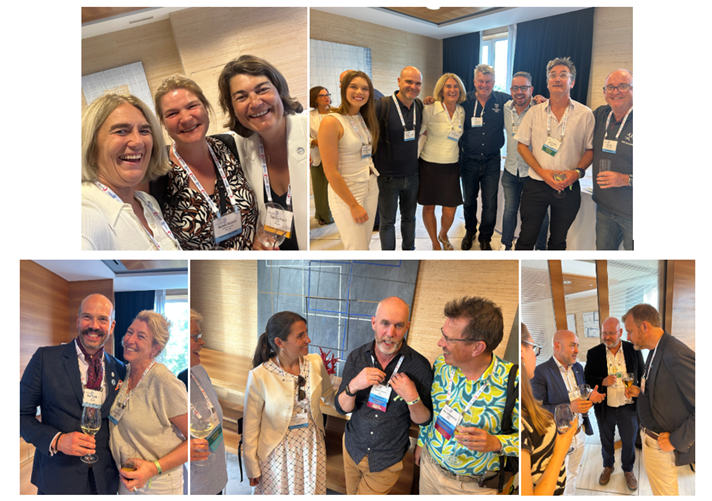
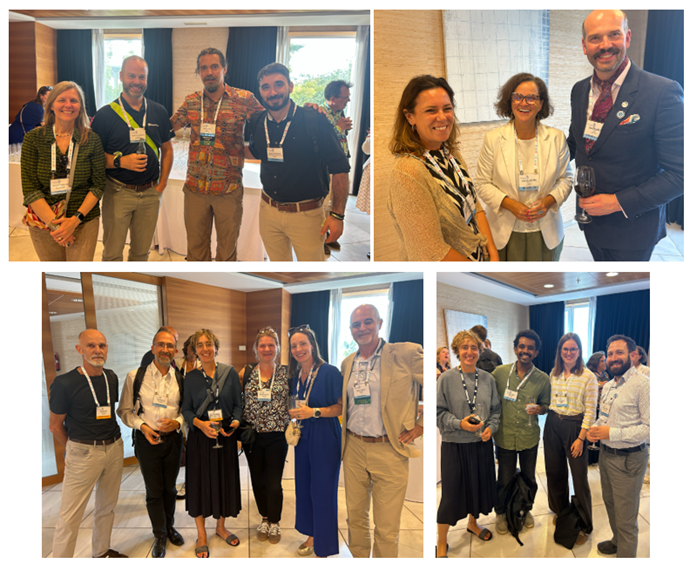
EATIP Annual General Meeting 2025
/0 Comments/in _, AAM, AQUAEXCEL3.0, From EATIP Members, OLAMUR, Projects, S3 /by EATIPThe EATIP Annual General Meeting was held this year on the 17th & 18th of June 2025 in beautiful Norway House, in Brussels.
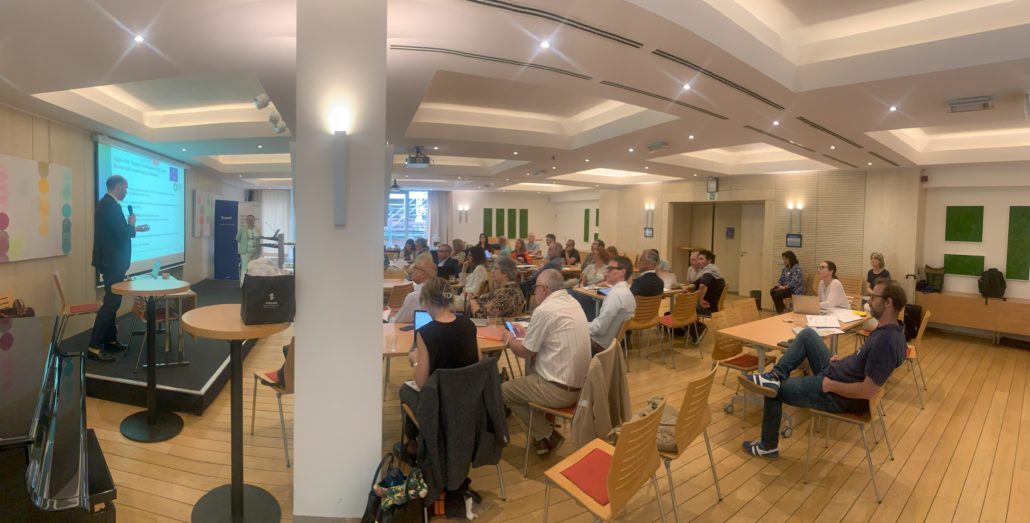
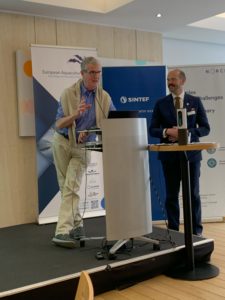
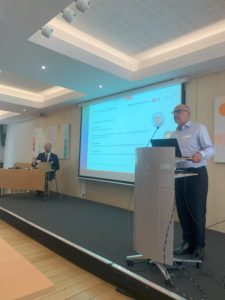
LAST CHANCE to apply for access to top-class aquaculture research infrastructures with AQUAEXCEL3.0
/0 Comments/in AQUAEXCEL3.0, Projects /by EATIP| Dear colleagues,
We hope you have a wonderful holiday season and a happy New Year! As you know by now, a major feature of the EU-funded AQUAEXCEL3.0 project is its Transnational Access (TNA) program, allowing external researchers to access the partners’ facilities. Research proposal submissions to the program are funded based on their successful evaluation by an independent selection panel. AQUAEXCEL3.0 is due to finish in 2025, meaning that the Transnational Access program will cease accepting applications on January 31st, 2025. This is your last chance to gain access to the 40+ unique research infrastructures of the participating institutes, with experimental costs, travel and subsistence covered by AQUAEXCEL3.0. As of May 2024, access is also granted to EMBRC facilities. The TNA program considers a research group in one country collaborating with one or more AQUAEXCEL3.0 Infrastructures located in a different country to the applicant. The program thus offers access to facilities and expertise not available in the applicant’s own country. Typically, collaborations involve one or more scientists from the applicant organisation visiting the selected AQUAEXCEL3.0 installation(s) to undertake research work there for up to 3 months. In some cases, remote access is also available. The facilities cover the entire range of: Aquaculture production systems:
Environments:
Scales:
Culture species:
Fields of expertise:
Please note that some of the facilities have reached capacity and may not be able to accommodate additional visits. Applications for Transnational Access can be made at any time until the 31st of January, 2025. For more details and to apply, download the flyer below or click here More information on each facility can be found here or via our interactive map which includes pictures and videos of the facilities. For assistance finding the right facility for your project, contact our orientation committee at aquaexcel-OC@inra.fr. Find out more about AQUAEXCEL3.0 x EMBRC here. To learn more about the stories from previous TNA user’s experiences, please refer to the videos and innovative outputs available on Videos – AquaExcel3.0. |
AE3.0’s 3rd FREE training course: “Conducting Experimental Infection Trials in Fish and Shellfish”
/0 Comments/in AQUAEXCEL3.0, Projects /by EATIPWe are pleased to announce the upcoming online training course, “Conducting Experimental Infection Trials in Fish and Shellfish.” Self-paced modules will be available starting October 28th, followed by live sessions on November 11th and 12th. Registration is now officially open!
Led by Denmark Technical University (DTU), this 3rd training course will focus on designing and analysing experimental infection trials in fish and shellfish, covering both fundamental and advanced concepts. The course is divided into two parts, the first part will consist of self-paced lectures covering essential theoretical topics, including ethical considerations for using animals in experiments, designing infection trials, evaluating pathogens and pathologies, etc. The second part will consist of live lectures focusing on applying the theoretical knowledge gained in the first part to real infection trials using several fish species and bivalves and different types.
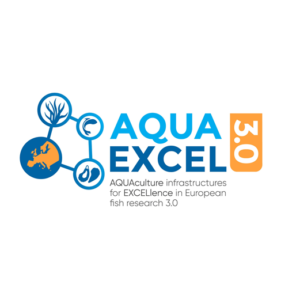
For more information on the training course and how to register, visit:
Training Course 3: Conducting Experimental Infection Trials in Fish and Shellfish – AquaExcel3.0
The deadline for registration is November 8th, at 9:00 hrs (CET)
Read more about the AQUAEXCEL3.0 project and the Training Courses.
EATIP @ AQUACULTURE EUROPE 2024
/0 Comments/in AQUAEXCEL3.0, EATIP Forum, European Commission, Events, Members, MIPs /by EATIPEXPLORING COLLABORATION & INNOVATION TRANSFER VEHICLES FOR AQUACULTURE
AQUA2024 – COPENHAGEN – Innovation Forum, August 28th
THANK YOU FOR YOUR PARTICIPATION!
09:00 Introductions
Moderators: David Bassett (EATiP); Alistair Lane (EAS)
09:15 Session 1: Fostering regional synergies in Europe for innovation in aquaculture
(Chair: David Bassett, EATIP)
- DG MARE, Unit A2 – Lorella de la Cruz Iglesias
- DG RTD, Unit Healthy Seas and Oceans – Nikos Zampoukas
- DG REGIO / S3 Community of Practice / IDEA Consult – Els Van de Velde
10:15 Plenary Discussion
10:45 BREAK
11:15 Session 2: Inter-Regional Innovation Landscape in Practice: case studies on how innovation transfer vehicles promote advances in aquaculture
(Chair: Mieke Eggermont, EATIP Mirror Platform WG chair)
- Example 1: InterReg – Adriatic Interregional Collaboration – Francesca Perretta (IPA ADRION National Contact Point Marche Region)
- Example 2: TSSP for Smart and Circular Aquaculture – David Bassett (EATiP)
- Example 3: Innovation Transfer with Mission Ocean – Blue Mission Banos (Efthalia Arvaniti (Submariner Network)
- Example 4: EATiP Mirror Platform Working Group on Sludge – Ann Cecilie Hilling (NCE Aquaculture)
- Example 5: The Nordic Research and Innovation Initiative for Sustainable Aquaculture – Kjell Maroni (Fisheries and Aquaculture Industry Research Fund / Nordforsk)
12:15 Panel discussion among speakers
12:30 LUNCH
14:00 Session 3: Innovation transfer within the Aquaculture Research Community
(Chair: Ana Hererro (Patogen / AQUAEXCEL3.0 IRAP)
- Example 1a: High impact AQUAEXCEL3.0 Knowledge Outputs
-
- Introduction: Open experiment facilities as tools for knowledge exchange – Karla Corrales (ERINN Innovation)
- CryoPlankton benefits in seabass aquaculture – Konstantinos Tzakris (Planktonic)
- Transforming food industry and agriculture waste into nutrient-rich alternative feed for fish: A Case Study with Black Soldier Fly Larvae – Martin Kulma (Czech University of Life Sciences Prague)
- Application of innovative and easy sustainable environmental enrichment on the behaviour and welfare of farmed trout – Georgina Lea Fazekas (MATE)
- Mentimeter
- Example 1b: European Marine Biological Resource Centre – Mery Pina (EMBRC)
- Panel discussion
- Example 2: EU-Asian International capacity building as a vehicle for future innovation transfer – Patrick Sorgeloos (EATiP International Cooperation Working Group)
- Example 3: FAO Aquaculture Unit – case study of the Shanghai Ocean University – TBC.
15:45 Session 4 – Facilitation, funding models and future calls for inter-regional innovation transfer
(Chair: Damien Toner / BIM)
- BlueInvest: Funding as international support tool – Cathrine Frideres (BlueInvest)
- ECBF – European Circular BioeconomyFund – Mathias Brink Lorenz (ECBF)
- EMFAF funds for the Flemish Aquaculture Cluster VAP – Stefan Teerlinck (Inagro)
- Mentoring and Accelerator Programme for Blue Growth – Efthalia Arvaniti (Submariner Network)
- Innovation and knowledge transfer support by Blue Bioeconomy CoLAB, a Portuguese case study – Taynara Franco (B2E)
- International Innovation Transfer as development support – Paw Petersen (Oxyguard)
16:45 Closing discussions
17:00 NETWORKING DRINK
EATIP AT THE AQUACULTURE EUROPE 2023, VIENNA
/0 Comments/in AQUAEXCEL3.0, Events, Members /by EATIPOur EATiP booth #39 was a great success with lots of visits from many colleagues from all over.
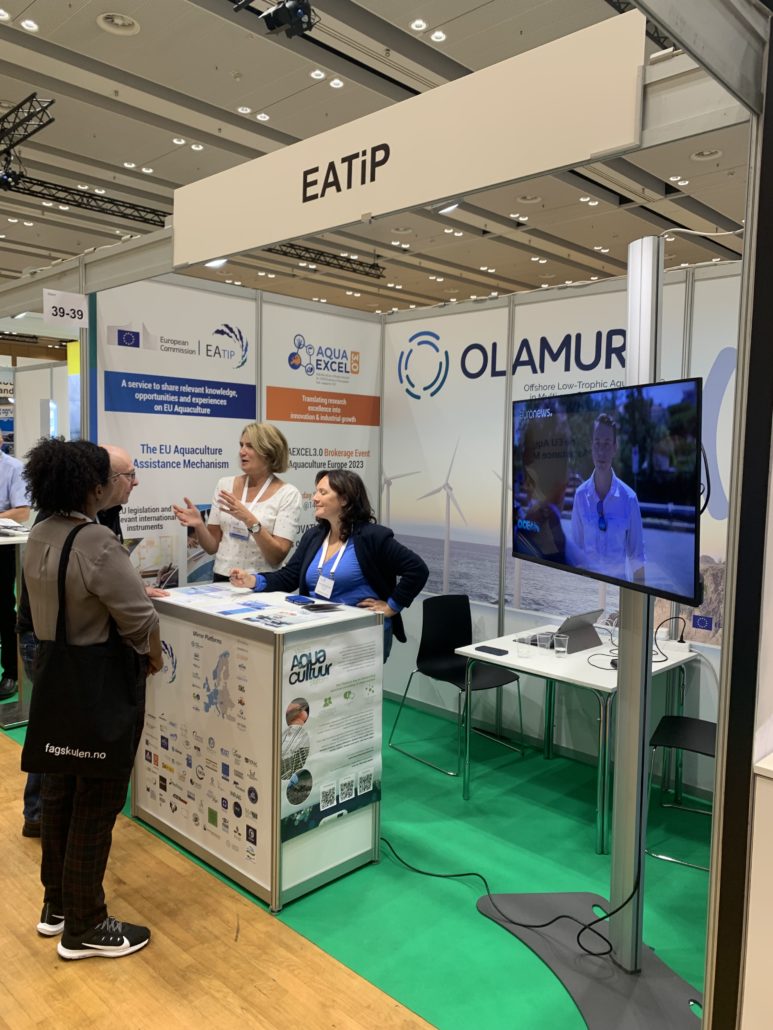
Information was given about our project work including:
-
- Providing technical input to The EC Aquaculture Assistance Mechanism
- The AQUAEXCEL 3.0 project – opening up transnational access to EU research networks
- OLAMUR – considering marine multi use (aquaculture and wind energy) as part of the EU Mission Ocean Baltic and North Sea Lighthouse

The EATiP / EC / EAS INNOVATION FORUM was extremely well attended on Wednesday 20 September (Programme), as well as the AQUAEXEL3.0 networking drink following the event.
More on the AQUAEXCEL3.0 presentations 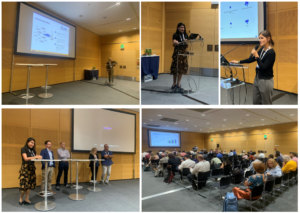
Experimental assessment of the fish meal content requirements for Meagre feeds, by Ramon Fontillas | Skretting ARC (Netherlands).
The effect of krill meal inclusion on the growth of juvenile gilthead seabream, by Kiranpreet Kaur | Aker BioMarine Antarctic AS (Norway).
Metal amino acid complexes as a cost-effective strategy to help reducing fish meal in European seabass diets, by Claudia Silva | Zinpro (Portugal).



